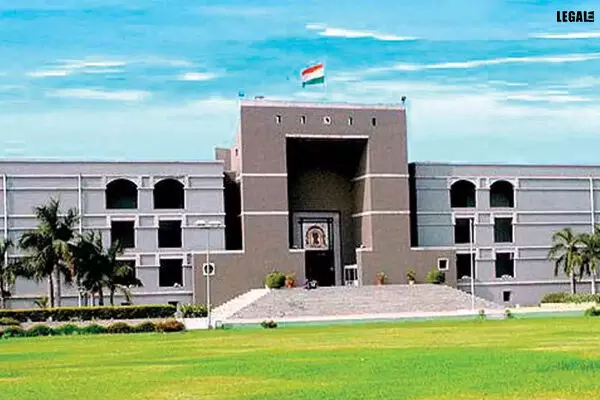- Home
- News
- Articles+
- Aerospace
- AI
- Agriculture
- Alternate Dispute Resolution
- Arbitration & Mediation
- Banking and Finance
- Bankruptcy
- Book Review
- Bribery & Corruption
- Commercial Litigation
- Competition Law
- Conference Reports
- Consumer Products
- Contract
- Corporate Governance
- Corporate Law
- Covid-19
- Cryptocurrency
- Cybersecurity
- Data Protection
- Defence
- Digital Economy
- E-commerce
- Employment Law
- Energy and Natural Resources
- Entertainment and Sports Law
- Environmental Law
- ESG
- FDI
- Food and Beverage
- Gaming
- Health Care
- IBC Diaries
- In Focus
- Inclusion & Diversity
- Insurance Law
- Intellectual Property
- International Law
- IP & Tech Era
- Know the Law
- Labour Laws
- Law & Policy and Regulation
- Litigation
- Litigation Funding
- Manufacturing
- Mergers & Acquisitions
- NFTs
- Privacy
- Private Equity
- Project Finance
- Real Estate
- Risk and Compliance
- Student Corner
- Take On Board
- Tax
- Technology Media and Telecom
- Tributes
- Viewpoint
- Zoom In
- Law Firms
- In-House
- Rankings
- E-Magazine
- Legal Era TV
- Events
- News
- Articles
- Aerospace
- AI
- Agriculture
- Alternate Dispute Resolution
- Arbitration & Mediation
- Banking and Finance
- Bankruptcy
- Book Review
- Bribery & Corruption
- Commercial Litigation
- Competition Law
- Conference Reports
- Consumer Products
- Contract
- Corporate Governance
- Corporate Law
- Covid-19
- Cryptocurrency
- Cybersecurity
- Data Protection
- Defence
- Digital Economy
- E-commerce
- Employment Law
- Energy and Natural Resources
- Entertainment and Sports Law
- Environmental Law
- ESG
- FDI
- Food and Beverage
- Gaming
- Health Care
- IBC Diaries
- In Focus
- Inclusion & Diversity
- Insurance Law
- Intellectual Property
- International Law
- IP & Tech Era
- Know the Law
- Labour Laws
- Law & Policy and Regulation
- Litigation
- Litigation Funding
- Manufacturing
- Mergers & Acquisitions
- NFTs
- Privacy
- Private Equity
- Project Finance
- Real Estate
- Risk and Compliance
- Student Corner
- Take On Board
- Tax
- Technology Media and Telecom
- Tributes
- Viewpoint
- Zoom In
- Law Firms
- In-House
- Rankings
- E-Magazine
- Legal Era TV
- Events
Tribunal has power recall its order, if party plays fraud: Gujarat High Court

Tribunal has power recall its order, if party plays fraud: Gujarat High Court
"No court or tribunal can be regarded as powerless to recall its own order if it is convinced that the order was wangled through fraud or misrepresentation of such a dimension as would affect the very basis of the claim."
In an application to challenge an order of the Tribunal, the Gujarat High Court clarified that in the event a party before the Motor Accident Claims Tribunal plays a fraud with the tribunal, it is thereby empowered to recall its order by which it granted relief.
The instant petition was filed by the Insurance Company challenging an order of the Tribunal rejecting its review petition which sought recall of the award in favor of the claimant on the ground that the claimant was not insured on the date of the accident and that thereby forged the insurance document.
Justice Gita Gopi observed, "The review application would survive having fallen under Order 47(1) of CPC since it was an error apparent on the face of record. Even otherwise, as it was urged of fraud by the driver and owner, the Tribunal had power to recall its own order."
It was noted by the High Court that the review application was rejected by the Tribunal on the grounds that the Insurance Company failed to file its written statement in the claim petition, and that the document in dispute was not adduced as evidence in the present matter. Hence, the review application was dismissed.
Relying on the case Anita vs Rambilas to reiterate: "If it is proved that one of the party has played fraud on the Court, then only the review petition is maintainable under section 151," the Court directed the Claims Tribunal to consider the claim petition afresh, from the stage of evidence.
Additionally, reliance was also placed on United India Insurance Co. Ltd vs. Rajendra Singh wherein it was held that remedy to move for recalling the order on the basis of the newly discovered facts amounting to fraud of high degree, cannot be foreclosed.
Thus, taking into account Order 47 Rule 1 of CPC for 'Application for Review of Judgement', Justice Gopi held that the instant review application would survive despite the delay of 4 years. It was explained that the delay condonation application was condoned by the Tribunal and the question of delay would not arise at the instant stage.
The Bench noted that the Jeep was not insured with the Insurance Company on the date of the accident and hence, the Petitioner was not liable to satisfy the award. Accordingly, the matter was remanded back to the Tribunal while it was directed that the compensation be kept in a Fixed Deposit.


